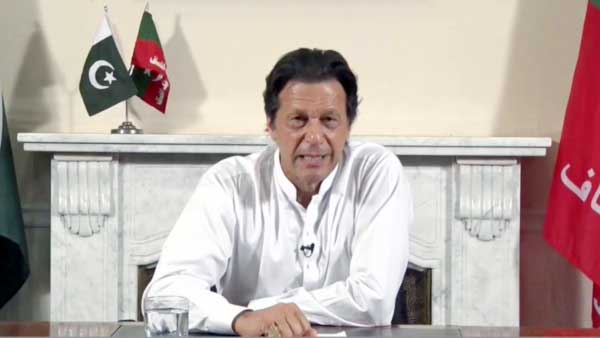Imran Khan’s new team consists of a number of familiar faces. Of the 21 member council of ministers, 12 have been part of General Pervez Musharraf’s cabinet, while five have been members of the Pakistan People’s Party (PPP) government.
Interestingly, one of the key slogans of his Pakistan-Tehreek-I-Insaaf (PTI) party campaign was ‘Naya Pakistan’ (new Pakistan) which many thought would pave the way for new faces. Khan has often spoken about the need to transform the ‘feudal culture’ of Pakistan, which many would argue has been among the impediments to Pakistan’s development and progress.
Feudalism is an important feature of Pakistani politics and kinship networks, as well as patronage, are key factors keeping the Pakistani state afloat, argues Anatol Lieven in his book ‘Pakistan: A Hard State.’ Both at the federal level in Pakistan, and at the provincial level in Punjab, there are faces which have been not just been part of the system (which Khan seeks to reform) but have also been initiated into politics by the Pakistan military.
Many faces in Khan’s new government are quintessential insiders to the system (like Sheikh Rashid, railway minister, who was earlier with Nawaz Sharif’s PML-N and in Musharraf’s cabinet). Shah Mehmood Qureshi, the new foreign minister, and Chaudhry Pervaiz Elahi are also part of the political elite.
Qureshi, whose father was Governor of Punjab, was initiated into politics by the Pakistan army and nominated to the Punjab Assembly during General Zia-ul Haq’s rule. He later shifted to Benazir Bhutto’s PPP and was foreign minister till 2011 when he was removed and left the PPP. Qureshi has links with farmers’ groups in Indian Punjab and visited India several times. He was in Delhi as foreign minister when the November 2008 Mumbai attacks happened.
In the important Punjab province, Khan has struck a deal with the Pakistan Muslim League (Quaid)’s Pervaiz Elahi, former Deputy PM and Punjab Chief Minister. Known as the Chaudhrys of Gujrat, the sugar barons have been in politics over six decades, and had close ties with military dictators, especially Zia-ul Haq. Their ideological orientation is similar to Sharif, and they were part of his PML-N till 1999. After the coup of 1999, they switched sides to join Musharraf, and Chaudhry Shujaat Hussain became Prime Minister, while Elahi became Punjab CM.
During his term as Punjab CM (2003-2008), Elahi sought to improve ties with Indian Punjab, establishing a rapport with Captain Amarinder Singh, then and now Chief Minister of Punjab. Several cultural and sports exchanges were held between both sides.
Elahi also attended the Punjab Games in 2004, with athletes from both Punjabs participating in the first of its kind post-Partition event. Attempts were also made to strengthen economic linkages. Chambers of commerce, like the Punjab, Haryana Delhi (PHD) Chamber and the Lahore Chamber signed MOUs to have joint exhibitions, which have since carried on.
It remains to be seen whether, during his current stint, Singh can use his rapport with Elahi to revive linkages between the two Punjabs. This would be in sync with Khan’s call for better economic ties between both countries.
The only Indian dignitary who attended Khan’s swearing-in was former cricketer, Navjot Singh Sidhu, who is culture and tourism minister in Amarinder Singh’s cabinet. Sidhu has also pitched for closer economic ties and closer people to people contacts between both the Punjabs.
In Islamabad for the Khan’s oath-taking ceremony, Sidhu met Pakistan Army Chief, Qamar Javed Bajwa, who, during their brief meeting, spoke about building a religious corridor which would help the Sikh community gain visa free access to Gurdwara Darbara Sahib, (Kartarpur) where Guru Nanak spent the last years of his life. 2019 is Guru Nanak’s 550th birth anniversary and India and Pakistan could celebrate this jointly, since the founder of the Sikh faith was born in Pakistan. Bajwa reportedly pitched for better ties with India. It remains to be seen whether improved people to people contacts and peaceful bilateral relations will work out.
Former Foreign Minister Khurshid Kasuri is also part of the PTI. Kasuri, whose grandfather was part of the Indian National Congress till 1940, was earlier part of the PPP, the PML-N and, during General Pervez Musharraf’s tenure, was foreign minister. He has close ties in India including with former minister, Mani Shankar Aiyar, and is a frequent visitor to India.
Looking beyond slogans, Khan’s use of tried old hands may appear opportunistic and a compromise, but it is useful for key policy areas, including ties with India. While Khan himself has close links with many people in India, the presence of old hands in his party and the government should be viewed positively.





